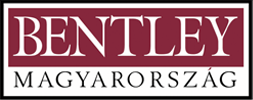Seeking treatment for a substance use disorder and PTSD have increased at least 300 percent in recent years. Generally, studies were conducted over many years and screened large numbers of subjects to reach target ptsd alcohol blackout samples. Difficulty with recruitment may be another reason investigators have included subjects who are taking other psychotropic medications even though this complicates the interpretation of results.
Alcohol Use Disorder and PTSD: An Introduction
As the current study did not include a measure of alcohol as self-medication, or drinking to cope, we were unable to conclude whether emotion dysregulation mediates the relationship between PTSD and drinking to cope. Future studies should examine whether drinking to cope does in fact show similar associations with PTSD and emotion dysregulation. Additionally, it would be informative to use structured interview measures of all of the constructs in order to gather more descriptive information and determine if these relationships differ in more severe populations. Although our subsample size of 70 examining mediation in men was small for many analyses, this was well over the suggested minimum of 25 for bootstrapping mediation (Preacher & Hayes, 2004). There were also a large number of individuals who were excluded for completing the survey too quickly. It is possible that these individuals may have differed from individuals who spent more than 25 minutes on the survey (e.g., greater psychopathology); therefore, it is a limitation that we did not compare those individuals we excluded.
Study setting and participants
- Alcohol is suggested to impact sleep quality [43, 63], however, it is worth noting that measures of sleep quality are subjective, include qualitative components [see 43, 64], and by their very nature are likely to strongly correlate with sleep quantity.
- Relatedly, the definition of a treatment “completer” needs to be better standardized, as it is difficult to interpret and compare treatment outcomes across studies when the results are based on patients who received widely different amounts of the prescribed treatment.
- In this regard, disinhibition and related constructs moderate within-person associations between drinking and alcohol-related problems (Neal & Carey, 2007; Simons, Gaher, Oliver, Bush, & Palmer, 2005; Simons, Simons, Maisto, Hahn, & Walters, 2018; Simons, Wills, et al., 2016).
- Despite the fact we could not measure source recollection, it is conceivable that recall performance for deeply encoded items would drop to a similar level seen for shallow encoding, after ingesting alcohol.
In summary, Petrakis and colleagues conclude that clinicians can be reassured that medications that are approved to treat AUD can be used safety and with some efficacy in patients with PTSD, and vice versa. Addressing both disorders, either by pharmacological interventions, behavioral interventions or their combination, is encouraged and likely to yield the most effective outcomes for patients with comorbid AUD/PTSD. For additional review of the two papers addressing behavioral and pharmacological treatments for comorbid SUD and PTSD, refer to Norman and Hamblen (2017). It is important to note that the variability in the after-MBO effects found across the three experiments can be explained by task demand differences and the additional cognitive processes these tasks engage in relation to free recall. For example, both our serial recall, and depth of encoding task are more cognitively demanding than simple free recall, involving an ordering of remembered episodes and also a delay to recall.
Torre testifies of alcohol-induced blackout during shooting – KUAM.com
Torre testifies of alcohol-induced blackout during shooting.
Posted: Fri, 13 Nov 2020 08:00:00 GMT [source]
Arousal and reactivity symptoms include:
Tryptophan degradation along the kynurenine pathway by causing the release of neurotoxic metabolites is reported to be increased in stress-related psychiatric disorders [28]. Reduced neurogenesis and a lack of neurotrophic support, such as that reflected in reduced plasma brain-derived neurotrophic factor (BDNF) levels, as well as increased stress hormones are consistent findings in stress-related disorders, including PTSD [29, 30]. As a result, some experience flashbacks and intrusive memories from war and use alcohol as coping mechanisms.
While prevalence estimates of PTSD among college students have varied, studies have shown that approximately 6 to 12% of students with a history of trauma have sufficient symptoms of PTSD to elicit a diagnosis (Bernat et al., 1998; Frazier et al., 2009). Each model included the 1-day lagged residual for the outcome (i.e., autoregressive effect). The model for conduct problems and alcohol dependence syndrome included the 1-day lagged residual https://ecosoberhouse.com/ PTSS score and the concurrent drinking residual score. In addition, the models included six day-of-the-week indicators, elapsed time since initiating study, and the time quadratic term at L1. At L2, the models included grand mean centered lability, disinhibition, gender, age, site, and the subject mean of time in study. Time, time quadratic term, PTSS, and drinking slopes were predicted by lability, disinhibition, gender, and age.
Co-Occurring Disorders
Medications targeting PTSD

Race and Ethnicity Considerations Related to AUD and PTSD
- It is possible that these individuals may have differed from individuals who spent more than 25 minutes on the survey (e.g., greater psychopathology); therefore, it is a limitation that we did not compare those individuals we excluded.
- That is, modeling the longer-term trend while accounting for within-person dynamic effects from multiple variables has not been examined with measurement burst designs (see Curran & Bauer, 2011 for similar modeling with panel data).
- The titration was accomplished in 2 weeks, so a 6-week trial should be adequate to evaluate medication response.
- We also report the average number of drinking sessions per week, the amount of alcohol drank in one week, average amount of alcohol drank in any one session, and the participant’s maximum alcohol drank for any one session.


Legutóbbi hozzászólások